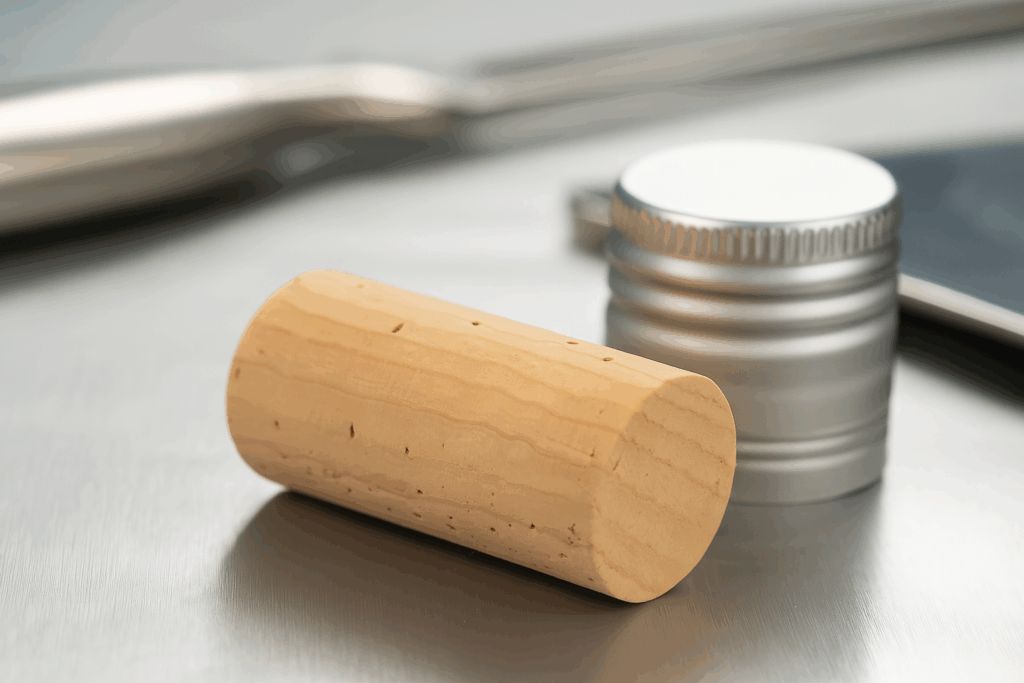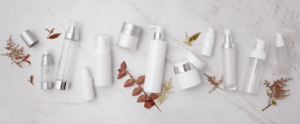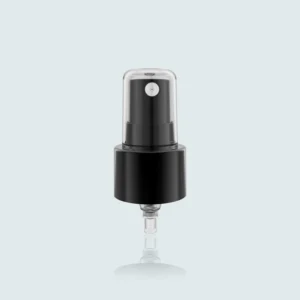In the world of global trade, the little things often make the biggest difference. Take bottle closures, for example—aluminum caps, corks, and those ever-present plastic bottle caps. They might seem like small components, but they’re workhorses: keeping drinks fresh, preventing leaks in cosmetic bottles, and even helping brands stand out on store shelves. For anyone in the import/export game, getting these right isn’t just about avoiding headaches—it’s about building trust with buyers and keeping your bottom line healthy.

Plastic bottle caps, in particular, have become a go-to for many businesses. They’re adaptable, cost-effective, and fit a wide range of products, from soda bottles to lotion jars. But whether you’re leaning toward plastic, aluminum, or cork, sourcing quality closures takes more than just picking the first supplier you find. This guide breaks down how to track down the best options, with a close look at why plastic bottle caps often rise to the top—and how to make sure you’re getting the good stuff.
1. Understand Your Product Requirements: Key Specs for High-Quality Closures
Before you start reaching out to suppliers, take a step back and think about what your closures actually need to do.
Material Standards
- Plastic bottle caps: If they’re touching food or drinks, skip the cheap stuff. Look for PET or HDPE plastics—they’re food-safe and hold up well. And don’t forget certifications: BPA-free is a must for markets like Europe and North America, where health regulations are strict. If your products sit in sunlight (think outdoor markets), UV-resistant plastic will prevent cracking.
- Aluminum caps: These need a protective coating to avoid reacting with acidic liquids like juice or wine. Without it, you could end up with a metallic taste in the product—not exactly a selling point. Corrosion resistance matters too, especially if your goods are stored in humid places.
- Corks: Natural corks are great for wines that need to age, thanks to their ability to let in tiny amounts of air. But if consistency is key—say, for mass-produced ciders—synthetic corks are a safer bet. They’re less likely to carry mold and fit more uniformly.
Functional Needs
- Seal tightness: There’s nothing worse than opening a shipping container to find leaking bottles. Plastic bottle caps, with their precise threading, often seal better than corks, which can vary in density. For carbonated drinks, pressure testing is a must—you don’t want caps popping off mid-transit.
- Compatibility: Measure twice, order once. Make sure your closures match your bottle necks. Most plastic bottle caps come in standard sizes (24mm, 30mm) which makes bulk ordering easier, but custom sizes are possible if you need something specific.
- Tamper-evident features: If you’re dealing with pharmaceuticals or baby products, buyers need to know the package hasn’t been opened. Plastic and aluminum caps with tear strips or induction seals are non-negotiable here—many countries require them by law.
Regulatory Compliance
Rules vary from place to place, and getting caught out can mean delayed shipments or fines.
- The FDA in the U.S. and the EU’s 10/2011 regulations set strict standards for anything that touches food or drink.
- In the Gulf countries, the GCC has its own labelling and safety checks.
- Here’s where plastic bottle caps shine: they’re so widely used that most suppliers already have the necessary certifications, which means fewer hoops to jump through at customs.
2. Top Sourcing Channels for Reliable Suppliers
Finding someone who delivers quality, on time, and at a fair price is half the battle. Here’s where to look.
B2B Marketplaces
Sites like Alibaba and Global Sources are treasure troves, but you have to dig carefully.
- Stick to “Verified Suppliers” or those with “Trade Assurance”—it’s like a safety net for your payment.
- Use specific search terms: “food-grade plastic bottle caps” or “aluminum caps with food-safe coating” will narrow down the list to serious players.
- Watch out for red flags: suppliers who can’t answer basic questions about materials or dodge requests for samples are probably best avoided.
Industry Trade Shows
There’s no substitute for seeing and touching products in person. Events like PACK EXPO in Chicago or interpack in Düsseldorf let you:
- Check out plastic bottle caps up close—feel the texture, test the fit.
- Chat face-to-face with manufacturers about bulk pricing or custom designs.
- Keep an eye on new trends, like plant-based plastic caps or aluminum caps with built-in straws.
Local Agents and Inspectors
If you’re sourcing from faraway places—China, Vietnam, Turkey—local help is a game-changer. Hire an inspector to:
- Drop by factories unannounced to check hygiene (you’d be surprised how many cut corners with plastic bottle cap production lines).
- Make sure the supplier can actually handle your order size. There’s no point in negotiating a great price if they can’t deliver 50,000 caps on time.
- Verify that plastic caps are made with the materials they claim—no sneaky substitutions.
Direct Manufacturer Partnerships
Cutting out the middleman has its perks:
- You can tweak details, like adding your logo to plastic bottle caps, without extra hassle.
- Prices are often lower since there’s no broker taking a cut.
- Communication is faster. If a shipment gets delayed, you’re talking straight to the people who can fix it.
3. Vetting Suppliers: 5 Steps to Ensure Quality
Even with the right channels, you need to put suppliers through their paces.
Check Certifications
- For plastic bottle caps: Ask for ISO 9001 (it means they have a solid quality system) and FDA or LFGB certificates (proof they’re safe for food contact).
- For aluminum caps: ISO 22000 is a good sign—this certification focuses on food safety. Also, get material reports to make sure there’s no lead or other harmful metals.
- For corks: FSC certification tells you the cork comes from responsibly managed forests—important for buyers who care about sustainability.
Request Samples
Order a handful of each closure type and put them through their paces:
- Plastic bottle caps: Screw them on and off a few times—do the threads hold? Submerge a capped bottle in water overnight—any leaks?
- Aluminum caps: Give them a gentle squeeze—do they dent easily? Check that the coating doesn’t flake off when you scratch it lightly.
- Corks: Look for mold spots. Wet one and see if it swells evenly—if it’s lopsided, it won’t seal properly.
Audit Production Facilities
If you can’t visit in person, pay someone to check:
- Cleanliness: Are plastic bottle cap machines wiped down between runs? Grease or dust can end up in your products.
- Consistency: Do they use calibrated tools to make sure every cap is the same size? A 1mm difference can mean a bad fit.
- Waste handling: Do they recycle plastic scraps, or just toss them? It’s a small thing, but it says a lot about their attention to detail.
Review Past Client Feedback
A supplier’s word only goes so far—ask for references from other importers. Questions to ask:
- Did they hit delivery dates, even when things got busy?
- Were there issues with the plastic bottle caps (like cracks or loose fits) after delivery?
- How did they handle problems? Did they send replacements quickly, or drag their feet?
Negotiate Clear Contracts
Get everything in writing to avoid misunderstandings:
- Quality promises: Spell out how many defective caps are acceptable (most businesses aim for less than 1% with plastic bottle caps).
- Compliance clauses: If a shipment gets held up at customs because the caps don’t meet local rules, the supplier should cover the costs.
- Flexibility: Leave room to adjust order sizes slightly—markets change, and you don’t want to be stuck with 10,000 extra caps you can’t use.
4. Cost vs. Quality: Balancing Your Budget in Import/Export
We all want to save money, but skimping on closures can cost you more in the long run.
Bulk Pricing Strategies
- Plastic bottle caps are hard to beat for large orders. Their production costs are lower than aluminum or cork, so suppliers often slash prices when you order 100,000 or more—sometimes by 10-15%. It’s a big reason they’re so popular for budget-friendly brands.
- Aluminum caps get cheaper in bulk too, but remember: extras like custom printing or special coatings add up.
Hidden Costs to Avoid
- Cheap plastic bottle caps might save you money upfront, but if they leak, you’ll end up with ruined products and angry customers.
- Non-compliant closures can get stuck in customs, racking up storage fees while your shipment sits idle. It’s not worth the risk.
Long-Term Savings with Quality
Spending a bit more on reliable closures pays off. Customers notice when products arrive in perfect condition, and that means repeat orders. Plus, good suppliers are easier to work with—no last-minute scrambles to replace faulty caps.
5. Trends in Bottle Closures: Why Plastic Bottle Caps Are a Smart Bet
The world of packaging is always evolving, and right now, plastic bottle caps are leading the charge.
Sustainability
More and more buyers care about the environment, and suppliers are stepping up. Look for plastic caps made from recycled materials or PLA (a biodegradable plastic derived from plants). They’re a hit in places like Europe and Canada, where recyclable packaging is becoming mandatory.
Customization
Brands are using plastic bottle caps to make their products pop. Bright colors, embossed logos, or even QR codes that link to social media—these small touches help products stand out in crowded stores.
Versatility
Unlike corks (mostly for wine) or aluminum (often for premium spirits), plastic bottle caps work for just about everything:
- Drinks: Soda, bottled water, craft beer, you name it.
- Beauty products: Shampoo bottles, face cream jars, hair gel tubes.
- Medicines: Pill bottles, liquid cough syrups, vitamins.
Conclusion
Sourcing great aluminum caps, corks, or plastic bottle caps isn’t rocket science, but it does take some legwork. Start by knowing exactly what you need, then take the time to vet suppliers thoroughly. And don’t sleep on plastic bottle caps—their mix of affordability, versatility, and ease of use makes them a smart pick for most import/export businesses.
Ready to find your perfect closure? Our team has spent years building relationships with top suppliers. Drop us a line, and we’ll share our list of trusted partners, plus tips for testing samples and nailing bulk pricing. Let’s get your products ready to ship—with closures that do their job, every time.






